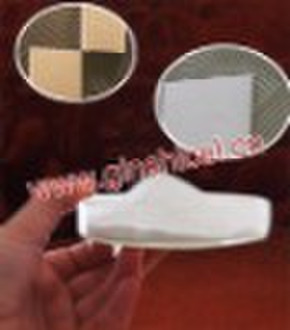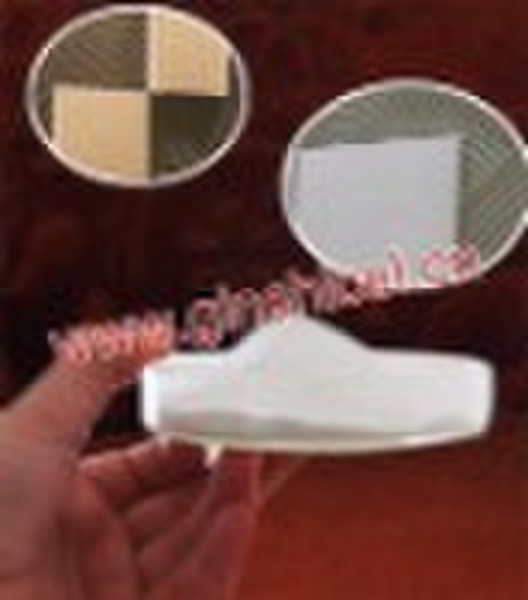Katalog
-
Katalog
- Auto & Motorrad
- Bauwesen und Immobilien
- Bekleidung
- Büro- und Schulartikel
- Chemikalien
- Dienstleistungen für Unternehmen
- Eisenwaren
- Elektrische Geräte & Zubehöre
- Elektronische Bauteile
- Energie
- Galanteriewaren
- Geschenke und Kunsthandwerke
- Gesundheit und Medizin
- Gummi und Kunststoffe
- Haus und Garten
- Haushaltsgeräte
- Koffer, Taschen & Hüllen
- Landwirtschaft
- Lebensmittel und Getränke
- Licht und Beleuchtung
- Maschinen, Geräte und Werkzeuge
- Maschinenteile und Herstellung Dienstleistungen
- Messapparat und Analysegerät
- Mineralien und Metallurgie
- Möbel
- Schuhe und Accessoires
- Schönheit und Körperpflege
- Service Geräte und -Ausstattung
- Sicherheit und Schutz
- Spielzeuge und Hobbys
- Sport und Unterhaltung
- Telekommunikations
- Textil und Lederware
- Transport
- Uhren, Schmuck, Brillen
- Umweltschutz
- Unterhaltungselektronik
- Verpacken und Drucken
- Werkzeuge
- Überschüssiger Warenbestand, Lager
Filters
Search
HPMC für den Bau
original-Preis: 4,00 USD
Shang-yü-ts’un, China

Josephus Ni
Kontaktperson
Basisdaten
| CAS-NR. | 9004-65-3 |
|---|---|
| andere Namen | - |
| MF | - |
| Registrierungsnummer EINECS | - |
| Ort der Herkunft | China (Mainland) |
| Klasse Standard | Industrial Grade |
| Reinheit | 98% |
| Optik | white or offwhite powder |
| Anwendung (Agrochemie) | construction additive |
| Marke | GinShiCel |
| Modell-Nummer | MH |
HPMC Hydroxypropyl Methyl Cellulose What it is: GinShiCelare types of cellulosederivatives known as cellulose ethers,specifically Methyl Cellulose(MC), Hydroxy Propyl Methyl Cellulose(HPMC), Hydroxyethyl Cellulose(HEC), and Hydroxy Ethyl MethylCellulose (HEMC) made by steps below: Soak the pure cellulose (purified cotton / wood pulp) in an aqueous caustic soda and organic solvent mix.React the resultant alkaline cellulose with etherifying agents, such as alkyl halides or alkylene oxides,Recover the solvents and wash the product,Dry and mill the ethereified product. What it does: GinShiCelcelluloseethers provides thickening power, water retention ability,consistencydevelopment, suspension power, emulsion development,protective colloid,film formation, lubrication, solutionstabilization, and various otherfunctions. How it functions: Uponeachcellulose ether molecule are the cellulose chain, and the ethergroup,such as the methoxy, the hydroxypropoxy, the hydroxyethoxygroups. Themethoxy group, hydroxyethoxy group, and hydroxypropoxygroups act aswater gatherers, although their ability to gather watervary greatly bytype and number. These water gatherers, which areattached to aentangled backbone of cellulose chain, form a temporarybond between thewater molecule and itself. In doing so, water isphysically trapped bythis cellulose ether molecule. Thus, thewaterborne particles which aredissolved in water is also trapped, byvirtue of the flexible butentangled nature of the cellulose chain.This way, water is in effectretained, and emulsion and suspension isachieved, and because of thefriction force needed to smooth thecellulose chain, the solution isthickened, and pseudoplasticity is achieved. How it is used : GinShiCelapplicationsare primarily focused on building materials and paints,although it hasa wide range of industrial applications including, not limited to: Building material Paint Oil field operations Coatings Leather making Ceramics Agriculture PVC Building material usages: Plasters, Renders, & Stucco: Base plastersDecorative Finish PlastersRepair PlastersInsulating Renders Adhesives: Tile AdhesivesEIFS AdhesivesWallpaper AdhesivesJointing & Filling Compounds: Self-leveling compoundsEIFS leveling compoundsWall leveling compoundsGrouts Special Applications: Underwater ConcreteExtruded Construction ElementsPaint Removers
Lieferbedingungen und Verpackung
Packaging Detail: net weight 25KG per valve bag, net weight 1.2 Metric Tons per pallet, pallets are wrapped for stability and weather resistance.1.2m x 1.0m pallet. Delivery Detail: 2 weeks from order
Hafen: Ningbo, China
Zahlungsbedingungen
Documents Against Payment
Letter of credit
Telegraphic transfer
-
Zahlungsarten
Wir akzeptieren:









